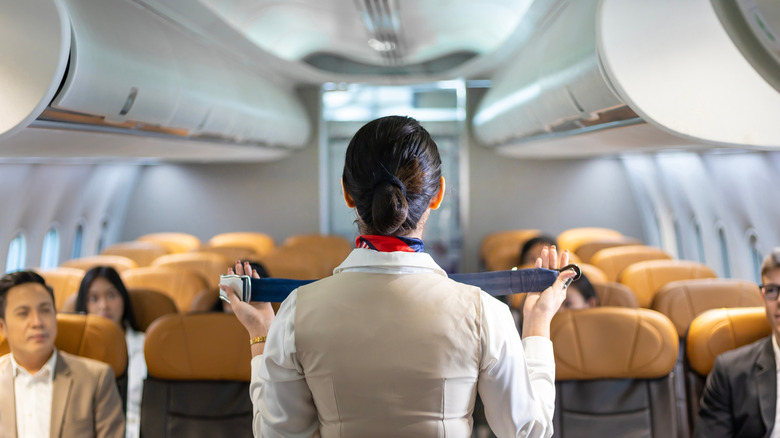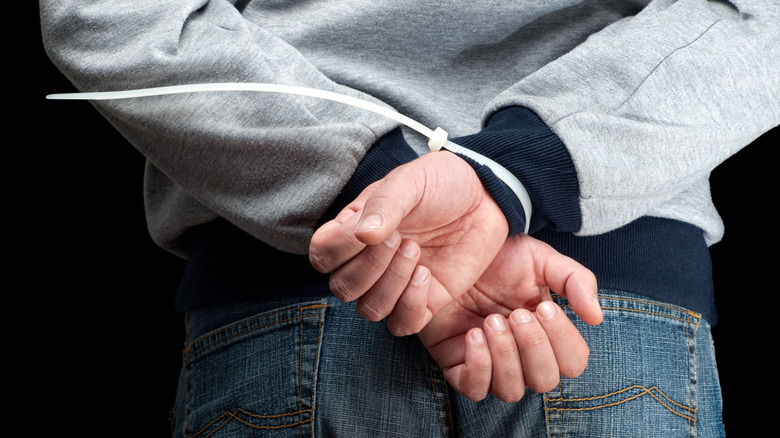Are Flight Attendants Legally Allowed To Restrain Passengers?
We all know that flight attendants take care of our comfort, bringing us beverages and food, helping us find places for our bags, and giving us a safety briefing. They also do things that you may not be aware of, like noticing signs of human trafficking and dealing with unruly passengers. In fact, passengers making trouble are one of the worst parts of a flight attendant's job, and it's become more of a problem since the pandemic. In fact, the Federal Aviation Administration (FAA) reported over 2,000 incidents of unruly passengers in 2024, and while it's much better than the almost 6,000 incidents in 2021, it's still elevated from pre-pandemic levels. That may leave you wondering if flight attendants are legally allowed to restrain passengers in the event of an air rage incident. Under certain conditions, they absolutely are.
Flight attendants are trained to de-escalate difficult situations first, using verbal tools. The next step would be giving the passenger(s) a warning. Then, if things haven't resolved, they may be called on to physically restrain the passenger. However, there is more to it than simply restraint, and they have to use their own discretion to determine whether it's warranted or not.
What goes into the decision to restrain a passenger
Before a flight attendant can physically restrain a passenger for in-flight behavior, they must get permission from the Commander of the aircraft (aka the captain). This is a last resort technique, and it's taken seriously. The decision to do this can come if someone is physically violent towards others or themselves, for non-compliance if they continue to refuse to follow instructions, and if there is a serious threat to their safety or the safety of others. It may be something like blocking a flight attendant from the aisle, making threats, or throwing things. However, there isn't uniformity in terms of what can be used to restrain a passenger. It may be handcuffs, zip ties, or straps, for example, and it can differ between airlines. If this is a long flight, the restrained passenger may be given food and water, but not allowed to get up to use the bathroom.
If a passenger interferes with a crew member's duties, that's a federal offense. Though the FAA can't prosecute you itself, it can impose severe fines and refer your case to the FBI. In fact, it can be up to $37,000 per violation, and you can still be prosecuted as a criminal by the FBI, leading you to face possible jail time and future travel restrictions.

